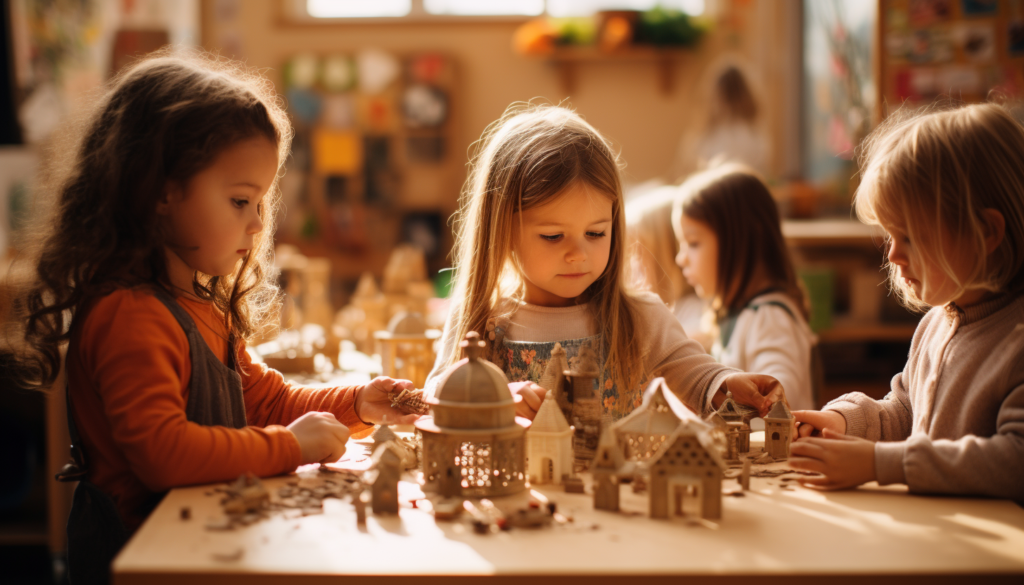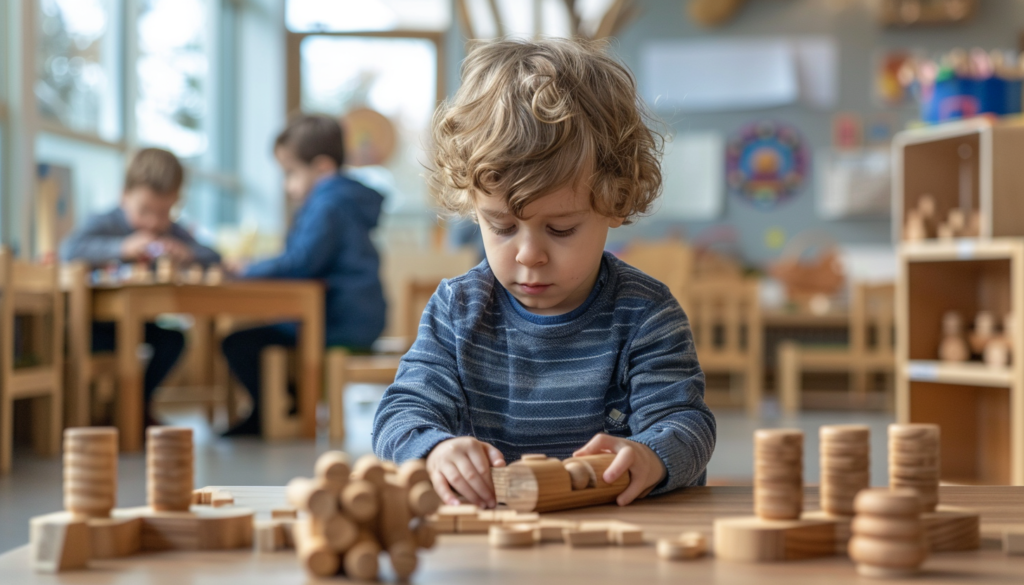Are Montessori gifts worth it?
Yes, Montessori gifts are worth it for many parents because they foster independent learning, promote hands-on activities, and are often durable.
GiftCurious participates in affiliate marketing programs, including Amazon Associates. See our disclosures.

What are Montessori gifts?
Montessori gifts are products that align with the principles of Montessori education, developed by Maria Montessori over a century ago. Since then, Montessori has evolved from an educational philosophy into a style of parenting.
Montessori-aligned gifts support these choices by encouraging sensory exploration, motor skill development, and the teaching of practical skills.
In terms of materials used, Montessori products reflect a strong preference for raw and natural materials like wood, metal, or felt—textures that are found in our natural environment.
Potential benefits of Montessori products
Improved concentration: One skill at a time
A frequently touted benefit of Montessori education for children is improved levels of concentration. Dr. Montessori found that, with the right activities, even very young kids could undertake repetitive tasks without distraction for long periods.
Some Montessori-themed toys are designed to promote focus and concentration by developing skills one at a time. Research also suggests freedom and choice within a carefully ordered structure are linked to improved psychological and learning outcomes.
Quality materials
Montessori gifts tend to favor natural materials like wood, metal, and cotton. This helps build a connection with nature and natural objects and offers an alternative to brightly colored plastic toys.
Durability
Artfully-crafted gifts can pass down from one generation (or child) to the next, which is hard to say for most gifts made of plastic.
Design
Some Montessori gifts are expertly designed to promote problem-solving, critical thinking, and fine motor skills. Others look like every other toy from Walmart—just with muted colors. Evaluate each item to see what makes it Montessori-aligned.
Sustainability
Having non-toxic finishes and materials is a good choice, especially in early childhood years. Montessori gifts often feature materials such as 100% organic cotton or sustainable harvested wood.

A skeptical take on Montessori gifts
Exaggerated benefits
Despite Montessori method’s 100+ year history, the number of extensive, independent assessments of its effectiveness is surprisingly low. So, if you’re looking for a seal of approval that says “this toy will make your child smarter,” you may find a whole lot of marketing instead.
Marketing gimmicks
Dr. Montessori herself is known to have developed learning materials. These were interactive objects with specific goals like teaching dimension or color.
The problem today is there is no standard for what gifts qualify as Montessori, so you’ll find a lot of products that carry the label despite being completely at odds with the learning philosophy. A gift labeled “Montessori” may be Montessori-aligned at best and a marketing gimmick at worst.
Higher cost
Virtually every product that comes with a “Montessori” label comes with a price premium. While durability, non-toxic materials, and intentional design can go a long way to justify that, often the added cost can be more than a few dollars. For a more detailed analysis, check out why Montessori gifts are so expensive.
Comparing Montessori vs. non-Montessori gifts
| Consideration | Montessori Gifts | Non-Montessori Gifts |
|---|---|---|
| Price | Higher upfront cost due to premium materials like wood. | Generally cheaper with a wide range of price points. |
| Durability | Built to last, often made of wood and metal. | Varies; many are made of plastic, less durable over time. |
| Educational Value | Promotes self-directed learning, problem-solving, and focus. | Some focus on entertainment or structured play. |
| Sustainability | Often eco-friendly materials; encourages minimalism. | Many rely on plastic, contributing to more waste. |
| Aesthetic Appeal | Simple, natural colors and textures. | Bright, colorful, sometimes electronic or light-based. |
| Longevity | Grows with the child—designed to support various stages. | May be outgrown quickly as interests shift. |
| Creativity | Encourages open-ended, imaginative play. | Often limits creativity with predefined roles or functions. |
Wrap up: Are Montessori gifts worth the price tag?
The answers boils down to each gift-giver’s priorities, budget, and judgment. True Montessori gifts can be a good deal for long-term educational growth, eco-conscious families, or those wanting durable toys that evolve with the child. More traditional gifts might be more suitable for those looking for short-term use, novelty, or those on a budget.
Sources:
https://journals.ku.edu/jmr/article/view/7586/7762
https://www.nature.com/articles/s41539-017-0012-7
http://faculty.tamuc.edu/jthompson/Montessori/documents/NinePrinciplesOLD.pdf
Lillard, Angeline Stoll. (2016). Montessori: The Science Behind the Genius
